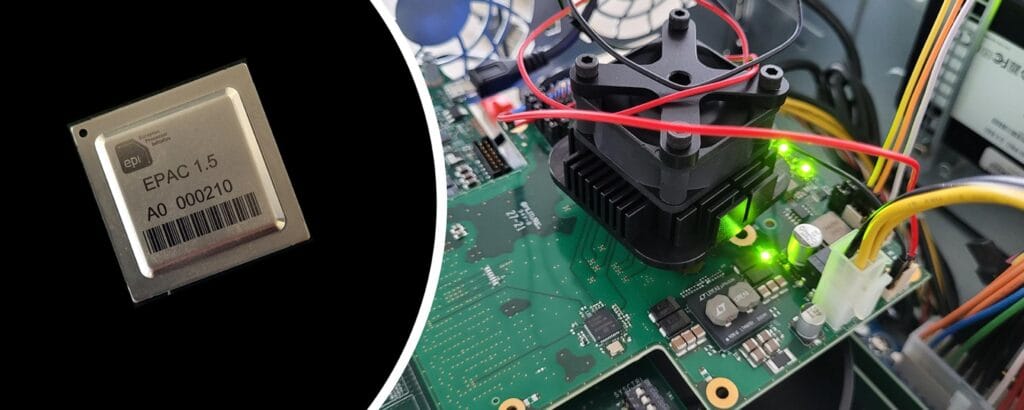Swedish researchers have developed a technological innovation that optimizes cache memory access in computers, laptops, and supercomputers, marking a milestone in the European Union’s strategy to reduce its reliance on foreign technology. This advancement, framed within the European Processor Initiative (EPI), not only enhances the performance of computing systems but also strengthens European autonomy in chip manufacturing, a sector historically dominated by the United States and Asia.
The project, led by Professor Per Stenström from Chalmers University of Technology and the University of Gothenburg, focuses on optimizing data management in cache memory, a critical component for speeding up computer operations. “Our solution allows computers to retrieve data much faster, as the cache can manage more processing elements than most current systems. This meets the demands of powerful computers of the future,” Stenström explained.
The initiative is part of a broader effort to establish a European processor industry that ensures access to advanced technology without relying on third countries. According to Stenström, it is crucial for EU member states to control the entire value chain, from intellectual property to chip manufacturing. “The uncertain global landscape makes it even more important to ensure European independence in advanced computing technology,” he stated.
A Step Toward Technological Autonomy
The European Union has taken concrete steps to strengthen its position in the semiconductor sector. Following the global chip shortage during the COVID-19 pandemic, the EU approved the European Chips Act, which came into force in 2023, with an investment of €43 billion to ensure the internal supply of semiconductors. However, closing the technological gap with powers like the United States and Asia remains a challenge.
Currently, most knowledge in hardware development is concentrated in the United States, with giants like Intel, NVIDIA, AMD, and Qualcomm, while semiconductor production is dominated by Asian companies such as TSMC and Samsung. China is also making rapid strides with companies like SMIC and CXMT. To compete, Europe needs to create a robust ecosystem that integrates design, manufacturing, and technological development.
“This project aims to ensure that Europe can develop competitive computing technology on a global scale. It is part of a long-term strategy to become self-sufficient with competitive products by 2030,” Stenström noted.
Impact on High-Performance Computing
In addition to its relevance for the semiconductor industry, the innovation by Stenström and his team will have concrete applications in high-performance computing. Their components are expected to be integrated into a large-scale European computing system before 2030. “It will be one of the fastest classical computers in the world, capable of modeling climate change, weather, and similar calculations that require high processing power,” the researcher revealed.
Beyond supercomputers, this technology is expected to be incorporated into consumer devices in the coming years, enabling more efficient and faster computers. The research has been recognized by the Royal Swedish Academy of Engineering Sciences (IVA), which included it in its annual list of the 100 projects with the greatest potential to generate market value.
The Future of Europe in the Tech Industry
The European Processor Initiative (EPI) positions itself as a cornerstone in the European strategy to lead in key sectors like semiconductors, system design, and artificial intelligence. Although Europe has leading companies like Imec and ASML, it needs a champion in chip manufacturing that can compete with giants like TSMC, Samsung, and Intel.
Europe must move quickly to lay the foundations for its tech industry by 2030. “We need megacorporations that receive economic, logistical, and bureaucratic support to compete with major technological powers,” Stenström emphasized.
With this innovation, Europe is not only advancing towards technological independence but also laying the groundwork for future developments in processors and their manufacturing, a process that experts say will take decades but has already begun to bear its first fruits.
source: El chapuzas informático and University of Gothenburg

